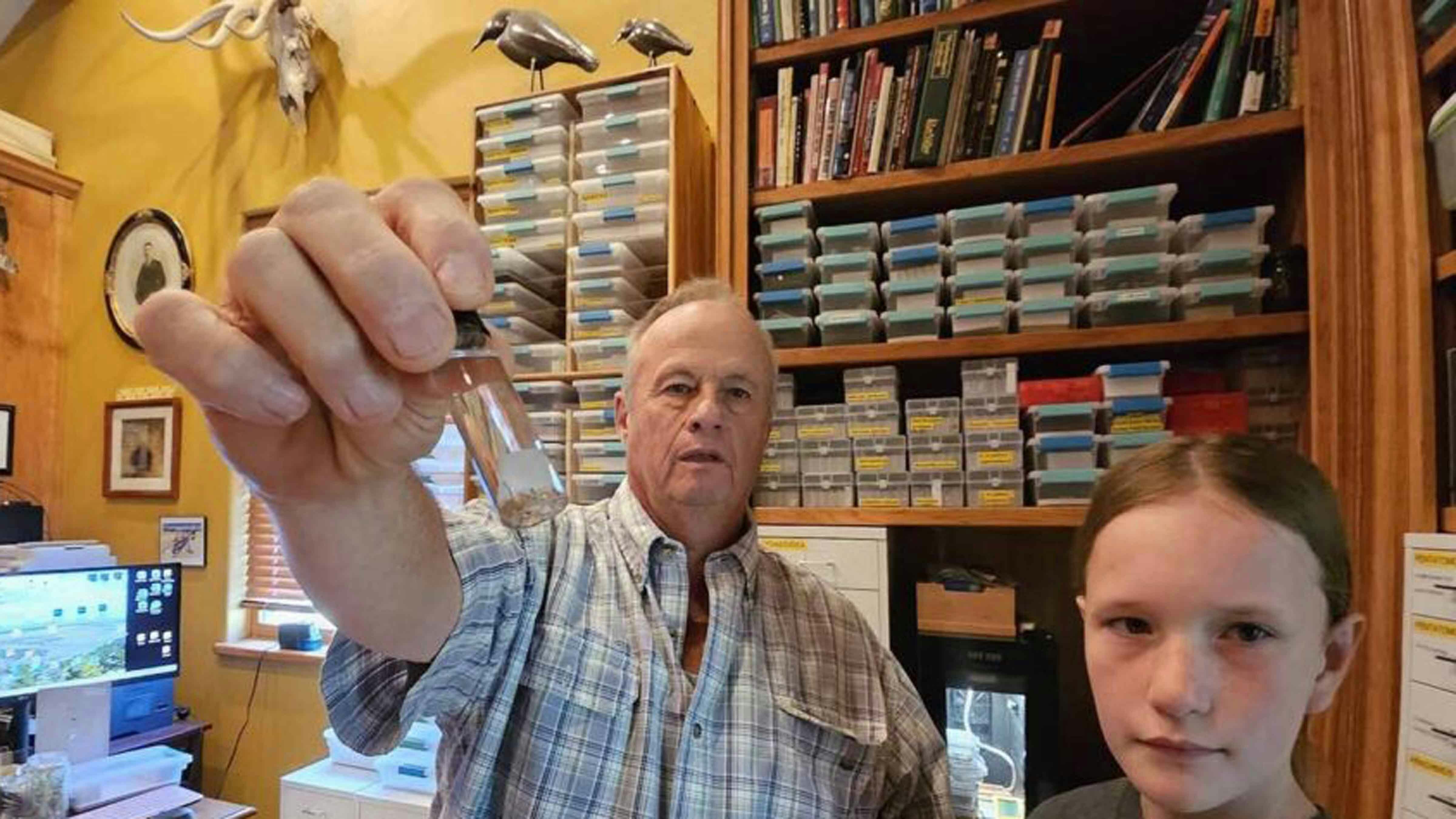When Mary Hayward started trash-talking her friends about wife carrying, she didn’t know much about the sport.
She and her husband Isaac competed a few years ago, and this year ahead of a Fourth of July showdown in Ranchester, the couple did not train for the grueling competition.
Wife carrying is exactly that — the husband carries the wife on his back through an obstacle course.
The Haywards — Isaac, an emergency room physician and Mary, a teacher — went on to win, claiming a qualifying spot at the North American Wife Carrying Championships with a time of 1 minute and 16 seconds, edging out their friends in the 278-yard race by a single second.
"I have four other siblings, so I have mastered my trash talk," said Mary. "And yes, I kept saying that we were going to kill them."
Her husband Isaac witnessed the psychological warfare firsthand as Mary goaded a group of friends who all work out at the Sheridan YMCA, including eventual second-place finishers Gene Leath and Katie Taylor.
"My wife, she is really good at getting people to do fun or crazy stuff," said Isaac. "She was taunting Gene, saying he was all talk about being fit and doing fun stuff."
The strategy worked perfectly, though the victory margin was razor thin.
Carried Interest
Wife-carrying events originated in Finland in rough terrain with fences, rocks and streams.
Now the standard course is altered to suit local conditions. In Ranchester,the track has two hurdles, a soft sand obstacle and a water obstacle that looks like a mud bog.
Before the race, Isaac and Mary practiced “for about a minute” what’s known as the Estonian carry method where the wife hangs upside down with her head by the husband's rear and legs around his neck, Mary said.
It apparently paid off.
“I was a better rider, apparently," she said, referencing how her friend Taylor struggled with positioning during the race.
Leath, a civil engineer and backcountry outfitter from Sheridan, said the loss stung a little because Leath felt physically prepared for the challenge.
As an outfitter, he's used to shouldering 120-pound packs and hauling 90 pounds of field-dressed elk meat through the backcountry.
But wife carrying, he discovered, presents unique challenges. The husband can sometimes feel strangled by the wife’s legs, and the wife must endure a bumpy ride with her thighs bouncing off her husband’s shoulders as he runs.
"I was joking, ‘Usually I have permission to hunt where I'm hunting, so I don't have to sprint to get out,’” laughed Leath, recalling how he nearly didn’t make it past the finish line.

Laughter And Tears
The race started promisingly for the Leath-Taylor team.
Ranchester Mayor Peter Clark summoned Leath and Taylor to the starting line to race alongside another couple.
“Next couples, mount your wives,” called out Clark, as both couples assumed the Estonian racing position.
"The first half felt pretty good," Leath recalled. "And then my wife got really sore, and I felt like I was abducting her for the second half of the race. Like it felt like she was no longer a willing participant, and she was trying to get off of me while I was running.”
"She went from giggling to crying while I was running," Leath added, describing Taylor, who weighs about 118 pounds and really struggled through the last stretch of the course that winds behind Ranchester Town Hall and includes a mud bog.
The dramatic finish came down to the final 30 yards.
"I could feel it and I was like, ‘My legs are going out, I'm going down. Let's just make it across the finish line,’" Leath said. "I go headfirst over the finish line basically because my legs just completely gave out."
Local Origins
The Ranchester event has been going strong since the mayor’s son Philip brought the idea to Wyoming after competing elsewhere.
Barbara Brackeen-Kepley, the town's clerk-treasurer, said they've held the competition every year since 2014, with this year's field of seven couples representing a typical turnout.
The competition initially was held at Connor State Park, but moved to the town hall grounds in recent years due to potential flooding issues.
The course follows official specifications with two hurdles, a soft sand obstacle, and a water obstacle, designed to replicate the rough Finnish terrain where the sport originated.
Brackeen-Kepley speaks from experience about the odd combination of physical prowess and spousal trust required for the sport. She and her husband competed a few years ago and placed second.
"It was a good bonding experience for sure," she said. "He did not drop me on my head, so that was great."
The only equipment allowed during competition is a belt to be worn “by the carrier to give the partner something to grasp. Helmets optional.”
Championship Stakes
The stakes extend well beyond local bragging rights.
The Haywards' victory qualifies them for the North American Championships at Sunday River Resort in Maine on Oct. 11, where they are eligible to compete against seasoned athletes who've refined their techniques over multiple seasons.
At the North American Championships, the water feature is called "The Widowmaker," and the unique prize structure adds another strategic element — winners receive their wife's weight in beer, making lighter partners potentially more valuable for speed while heavier partners offer greater liquid rewards.
Jesse Wall, a two-time North American champion, emphasized that winning requires more than just physical strength.
"The 'wife' is in charge of winning more often than the guys," Wall said in a release from Sunday River Resort. "A horse is only as good as its rider."
Wyoming's competition coincided with the World Championships in Sonkajarvi, Finland, where on July 5 history was made.
For the first time ever, an American couple claimed the world title, with Caleb and Justine Roesler from Waukesha, Wisconsin setting a new course record of 1:01.17.
To put the Wyoming times in perspective, the winning time in Ranchester would have placed just outside the top 10 finishers in Finland, where 75 couples from 17 countries competed.
The gap illustrates both the international caliber of competition and the potential for growth in American wife carrying.
Historical Roots
The sport's origins trace back to the legend of Herkko "Robber" Ronkainen, a Finnish bandit who required potential gang members to prove their strength by carrying sacks of grain — and sometimes women — across rough terrain.
What began as a test of bandit worthiness has evolved into a celebrated international sport that combines athletic prowess with good-natured absurdity.
The Ranchester rules specify that teammates don't need to be legally married but must be at least 21 years old, and the cardinal rule that "all participants must have fun" will be enforced.
For the Haywards, who claimed the $250 first place prize in Ranchester, as Wyoming champions they also carry the responsibility of athletic role models.
“If they win nationals, they get to actually go on to Finland,” said Brackeen-Kepley.
Plus, lots of free beer. Isaac figures Mary weighs around 130 pounds.
“I would definitely train just to win that much beer,” said Isaac. "That's a lot of beer. I would be so happy to get 130 pounds of beer."
David Madison can be reached at david@cowboystatedaily.com.





